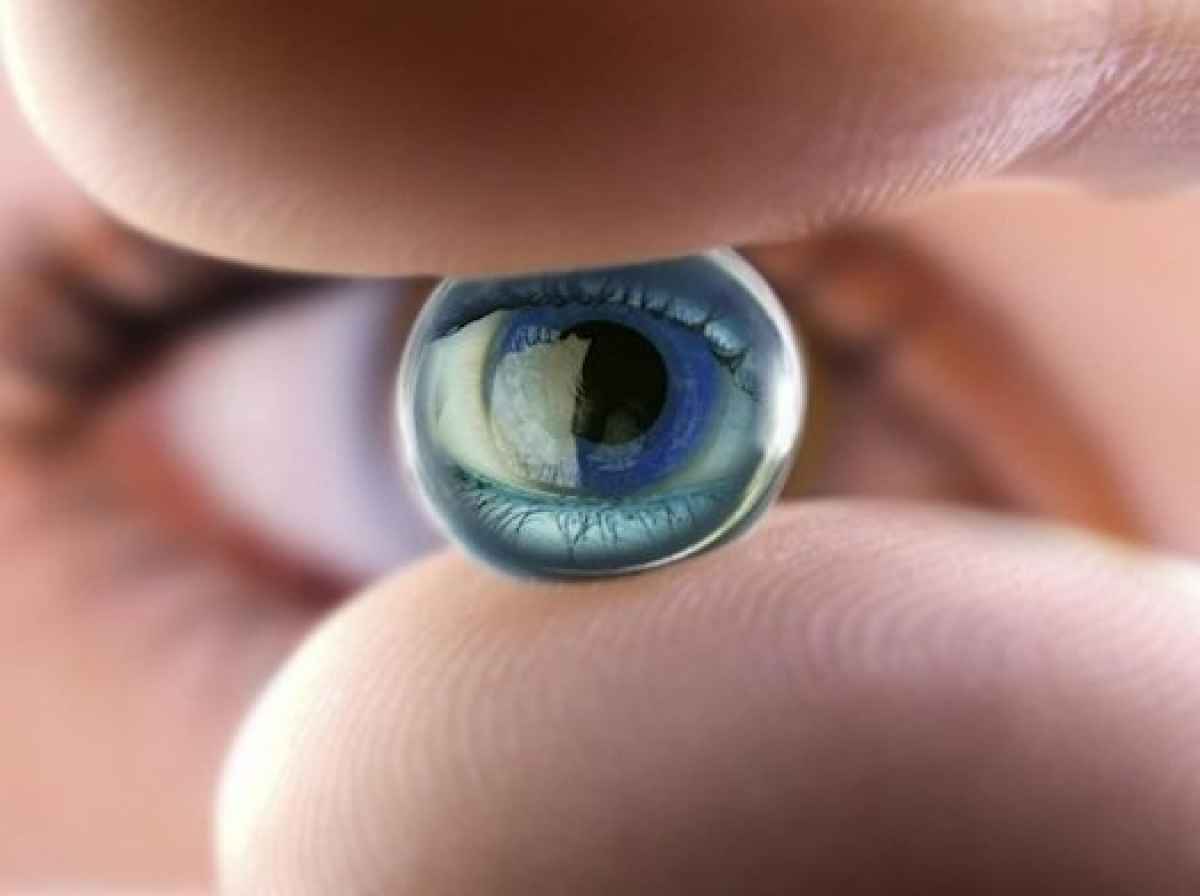How would you like to put in your contact lenses in the morning and not only be able to see clearly, but suddenly have the superhuman power to magnify your vision up to three times your normal ability? Scientists are working hard to turn that sci-fi fantasy into reality.
Contact lenses have come a long way—technologically speaking—in the last few decades. Gone are the fragile, uncomfortable, and sometimes harmful glass lenses of yesteryear. Advanced contact lenses like Air Optix Aqua or the Acuvue Oasys use space-age materials like silicone hydrogel to maximize oxygen permeability and surface moisture retention. Other amazing technological achievements in the works include lenses that can monitor for diseases, deliver prescription drugs for eye disorders like glaucoma, cataracts, and macular degeneration, introduce stem cells into the eye for corneal repairs, protect against harmful UV rays with special photochromic molecules, and make information available for electronic viewing and augmented reality by the use of ultra-tiny circuits, antennas, and LEDs.
A Marvel of Miniaturization
The new telescopic-vision contact lenses are being developed in the laboratories of the École Polytechnique Fédérale de Lausanne in Switzerland. The latest prototype was unveiled by the prestigious institution in February. The lenses—amazingly thin considering what they’re capable of—are only 1.55mm thick, which is just slightly thicker than a contact lens like the Air Optix Aqua. They actually utilize a tiny reflective telescope made up of mirrors and light filters. The new technology is based on a similar surgically-implanted telescope that has been in use by patients suffering from age-related macular degeneration for some time.
One of the biggest advantages of the new prototype lenses is the ability to switch back and forth between magnified vision and regular vision, literally at the blink of an eye. This is made possible by the use of a supplementary pair of special eye glasses. The glasses use a sophisticated LCD technology that closely monitors the movements of the eye. With the wink of an eye, the wearer can alter the polarization of the battery-powered glasses, which determines whether or not the light entering the eye is being magnified or not. The glasses also include a built-in button for manual control. Says EPFL research scientist and inventor of the new lenses Eric Tremblay, “having the ability to switch on demand is attractive.”
The ability to switch from magnified to normal vision is important in everyday life. “When magnified, you lose a lot of your field of view, your peripheral vision,” said Tremblay. Users can switch off the magnification when doing something that requires good peripheral vision, like crossing a street or driving a car, yet zoom in in an instant to recognize friend’s faces or read a menu.
Hope for AMD Victims
The research is being funded in part by the U.S. military, which hopes to use the new lenses to give enhanced long-range vision to pilots and soldiers.
But the main beneficiaries of the new technology will be those suffering from macular degeneration, which is the third most common cause of blindness around the world. “AMD is the biggest problem where magnification is a proven visual aid.” says Tremblay. Age-related macular degeneration causes damage to the retina of the eye and a gradual loss of central vision, and there is no really effective treatment or cure.
Like the Air Optix Aqua contact lenses, the telescopic lenses facilitate the flow of oxygen to the surface of the eye, which can be impeded by the slightly thicker profile. Using air channels and in the future—an oxygen-saturated solution—the designers hope to increase the comfort of the lenses.
So far the new telescopic lenses have only been tested on a small group of human volunteers, and that just to gauge comfort. Other types of tests have been conducted in the lab using a sophisticated chemical eye. But more human trials are being planned, with hopes that the sci-fi-like lenses will soon be on the market.

